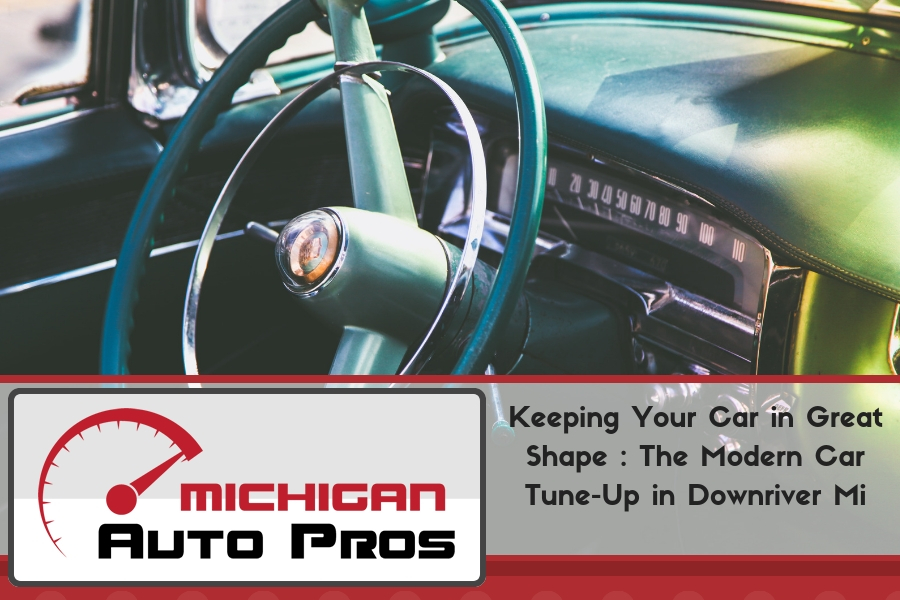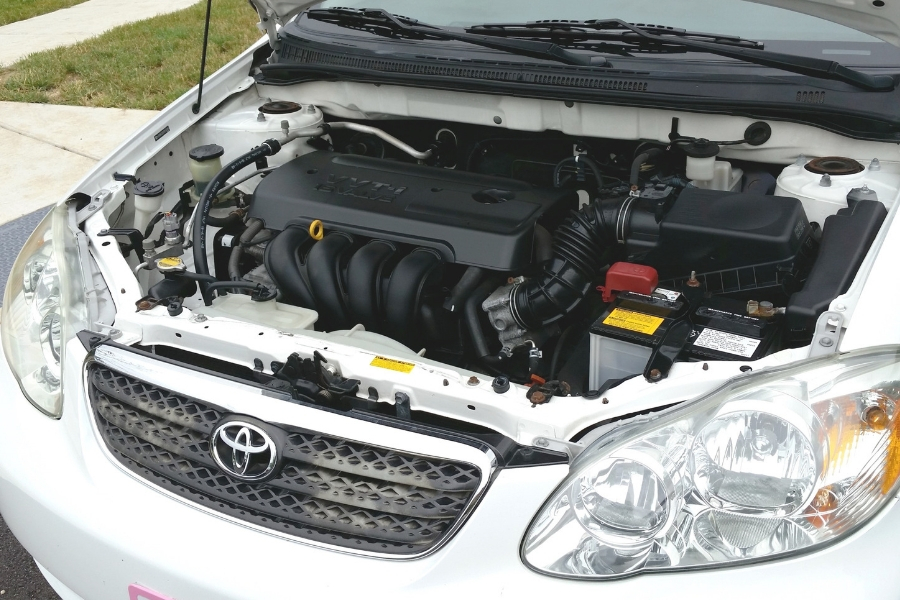Ever been driving with the radio turned up and hear a noise but can’t tell if it came from your car or the song? As you turn down the volume, reality sets in and you realize that bumping sound isn’t the beat of a drum but is instead coming from under your hood. Most drivers are fairly in-tune with the sounds of normal driving, and anything unusual may be justifiable cause for alarm. That sinking sensation that sets in as you realize your car needs to visit the repair center for some unscheduled service may have been avoided. Behold: the tune-up!
What exactly is a tune-up?
Although the expression has remained the same for decades, today’s tune-ups aren’t the simple carburetor adjustments and filter replacements they used to me. In fact, virtually no vehicles even use carburetors any longer. While the tune-up still exists, most cars made in the last several decades have specific service intervals for their various systems. Because nearly all cars on the road today rely heavily on sophisticated computers to keep them running, the tweaks and adjustments associated with the tune-ups of yesteryear are simply no more. In short, a “tune-up” on today’s vehicles will probably amount to little more than new spark plugs and wires. Cars have far more systems on board than they did even 20 years ago. It simply isn’t cost effective to go through each and check for any issues on the basis of a tune-up.
This is by no means to suggest you should discard the concept of getting your vehicle tuned. Much to the contrary. However, if you think your car needs a tune-up it’s best to take note of why it is running poorly, rather than simply bringing it in on a whim because you think it’s time. Today’s “tune-up” should best be viewed as a preemptive strike against any performance issues before they turn into high-dollar repairs.
Stalling and Hard Starting
If your vehicle is stalling or is difficult to start, it could be a sign that the fueling is off or the spark plugs are faulty. Spark plugs are a consumable item but should be able to yield high mileage under ideal circumstances. Improper air and fuel mixtures can damage spark plugs and cause intermittent stalling and hard starting. If you’re experiencing either of these symptoms, your car needs tuning and it’s best to bring it in to a service center before you’re left stranded. Expect to spend around $150-$200 if you drive a small four-cylinder vehicle. Each cylinder uses one spark plug (some may use two), so expect prices to go up with the number of cylinders.

Fuel and Air Filter
These are focal points of the classic auto tune-up. The air filter prevents both large debris and microscopic particles for entering your engine. A dirty air filter will fail to properly do its job and could result in dirt getting into your engine which over time can do costly and sometimes irreparable damage. Air filters are relatively cheap and can often be changed by the driver without the need for tools.
Like air filters, fuel filters keep particles from entering the injectors and other sensitive fuel delivery components. Unlike the vehicles from days gone by, modern cars do not need frequent replacement of the fuel filter. Although it’s generally considered maintenance-free, fuel filters do occasionally need replacement and will generally cost under $200. Because of the relatively inaccessible nature of the filter coupled with the obvious hazards of gasoline, it’s best to let a skilled service tech replace the fuel filter should the need arise.
Belts
The timing belt turns a camshaft which ensures the valves open and close in accordance with the piston’s position in the cylinder. Valves allow both the intake of the fuel and air mixture, and the exhausting of gases after it has been ignited by the spark plug. How far each valve opens and for how long it stays open is a vehicle tuning science, and the and a topic of discussion for many performance enthusiasts. Suffice to say, if the valve touches the piston catastrophic engine damage will occur. A broken timing belt will probably cause that to happen. Many vehicle manufactures have replaced timing belts with maintenance-free chains. But if not, timing belts vary greatly in cost. The belt itself is cheap, but its location is often difficult to reach and results in extensive labor costs. Don’t be shocked by $3000 or more if you drive a high-end European vehicle.
The other belt of concern is the serpentine belt. This belt drives many of the vehicle’s ancillary systems (AC compressor, alternator, etc.) including the power steering pump and often the water pump. If the belt brakes, the most immediately noticeable issue will be a loss of power steering. In the moment, it can cause drivers to panic. The car can be steered; however, it will be much more difficult. Don’t neglect the serpentine belt and be sure to have it inspected whenever you bring your car in for service.
Throttle Body and Fuel Injectors
On fuel injected vehicles, the throttle body takes the physical place of a carburetor and generally sits between the air filter and the intake manifold. It’s responsible for controlling the amount of oxygen the engine receives in accordance with the driver’s input via the accelerator pedal. Although generally low maintenance, it’s a critical component of the air intake system. Over time, debris and carbon deposits may build up inside and require cleaning or adjusting. A misadjusted or dirty throttle body can result in a noticeable decrease in power, stalling, or in severe cases; a car that won’t start.
Basically, all cars are now fuel injected. Before fuel injection, carburetors; devices that mix air and fuel by mechanical means, were the norm. There is nothing inherently wrong with carburetors, but they must be manually adjusted and therefore cannot account for all driving and weather conditions. Fuel injectors are controlled by the car’s onboard computer and can self-adjust on the fly. This ensures optimum fuel delivery in every condition. Occasionally, injectors may fail and there will be a noticeable decrease in power. Unlike carburetors which can require costly adjustments, a faulty fuel injector can simply be discarded and replaced.
Battery
If your battery fails, your car won’t run. Signs of a failing battery include sluggish starting, and noticeable corrosion around the terminals. Most auto part retailers will test batteries for free and may even offer replacement service while you wait. If your battery is new or you know it’s in good health but still having trouble starting, you may want to get your alternator checked as well. The alternator is responsible for keeping the battery charged to an optimum level. If not properly charged, the battery will provide electricity to your vehicle’s components (including the much-needed spark plugs) but once its charge has depleted, they will fail to run. This is where the alternator comes in. It’s easy for a service technician to check, and not terribly expensive should a replacement be needed.
Some parting words
The tune-up is alive and well, although not all-encompassing as it once was. Think of each of your car’s various systems as having their own separate tune-up requirements. A tune-up is essentially preventative maintenance as outlined in the owner’s manual that comes with the car. In the interest of keeping maintenance costs low, many components on modern vehicles are simply discarded and replaced when they fail, instead of being rebuilt or adjusted as they were on older vehicles.
The core functions of a car have remained the same, and some of the simplest maintenance continues to be the most important. If you notice any unusual sounds coming from your vehicle, or just can’t remember the last time you took it in, give Good Care Auto a call at (734) 285-1188 and let them get you back in tune with your car!
